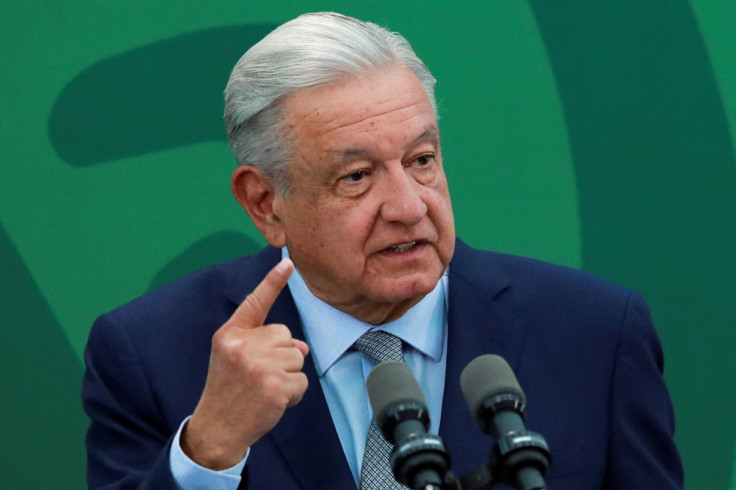
A dozen Latin leaders gathered Sunday in Mexico to discuss how to confront complicated and huge illegal migration flows, mostly to the United States.
For Washington, it is a massive crisis with political fallout on the scale of the conflicts in the Middle East and in Ukraine.
Mexico wants to "combine efforts, will and resources to tackle the causes of the migratory phenomenon", President Andres Manuel Lopez Obrador said on X, formerly Twitter, as the summit got under way.
"This is a humanitarian issue on which we must work united," the president, who goes by AMLO, stressed.
Muy fructífero el Encuentro de Palenque, por una vecindad fraterna y con bienestar para enfrentar el fenómeno migratorio con cooperación y respeto a los derechos humanos. pic.twitter.com/CtCxqr0KYL
— Andrés Manuel (@lopezobrador_) October 23, 2023
This year alone, 1.7 million migrants arrived at the Mexican-US border. And the migration is becoming a huge political hot potato in both North American nations, which each have presidential elections next year.
September alone saw 60,000 migrants arrive in Mexico from Venezuela, along with 35,000 Guatemalans and 27,000 Hondurans, according to the Mexican government.
Lopez Obrador welcomed his counterparts Nicolas Maduro from Venezuela, Miguel Diaz-Canel from Cuba, and Gustavo Petro from Colombia, among others including several foreign ministers.
They were meeting in Mexico's southernmost state of Chiapas, which has become the entry point for thousands of people coming from South America, Central America, the Caribbean and elsewhere, to try to make it across sprawling Mexico -- and into the United States.
One migrant at a shelter nearby slammed that he called this "Summit of the Oppressors," and mentioned the presidents of Venezuela, and Cuba -- the only Communist-ruled one-party nation in the Americas.
"I suppose they are going to decide to deport all of us," said Jorge Rodriguez, a 33-year old form Venezuela on his way northward.
Amid US economic sanctions and a political and economic crisis, some 7.1 million Venezuelans have fled the country in recent years, creating challenges for its South American neighbors.
Some 130 Venezuelan migrants arrived back home Wednesday on a chartered plane from the United States on the first such deportation flight following an agreement between the two countries, despite the fact that Washington does not recognize Maduro's 2018 reelection.
The United States sends migrants back home, mainly to Central and South America, on about 70 flights every week, authorities said recently.
At the same time, the Biden administration also recently offered protection from deportation to 472,000 Venezuelans to allow them to obtain residence and work permits within 18 months -- although this would apply only to those who arrived before July 31 of this year.



